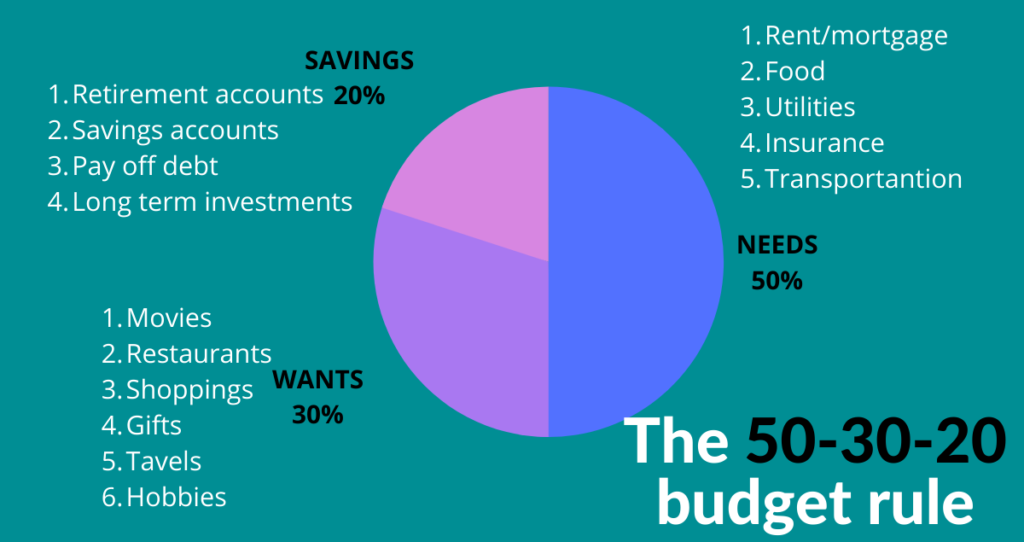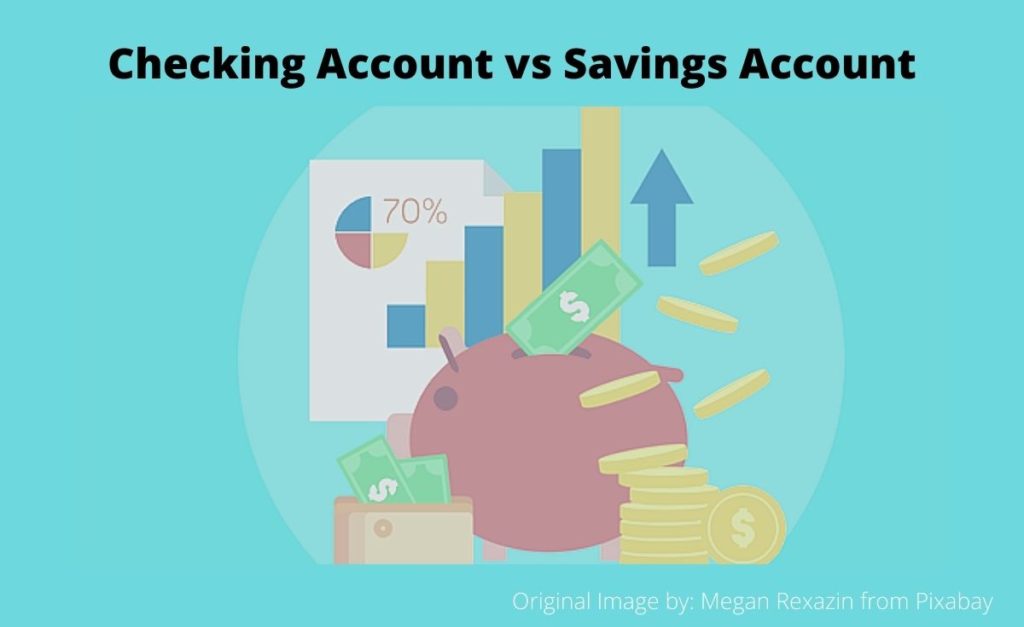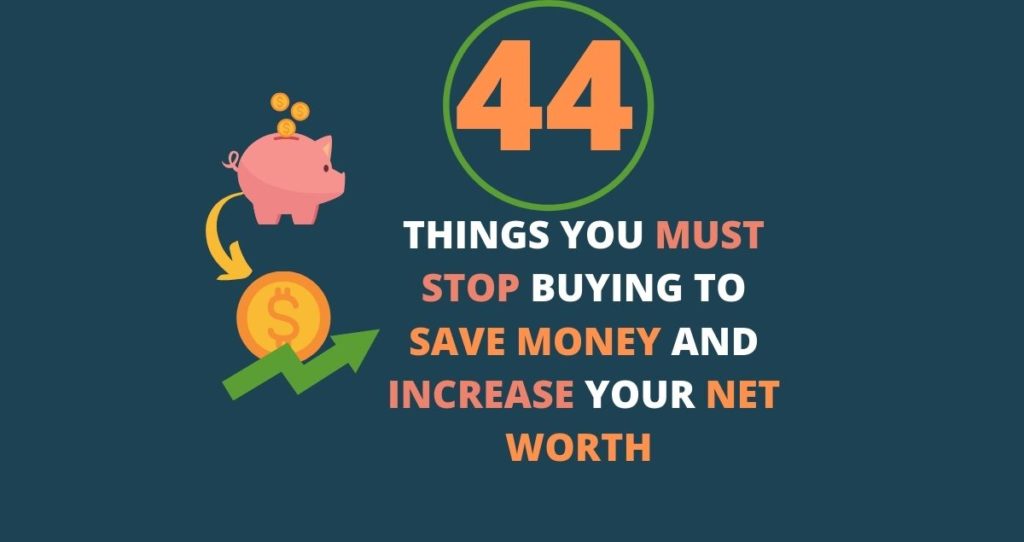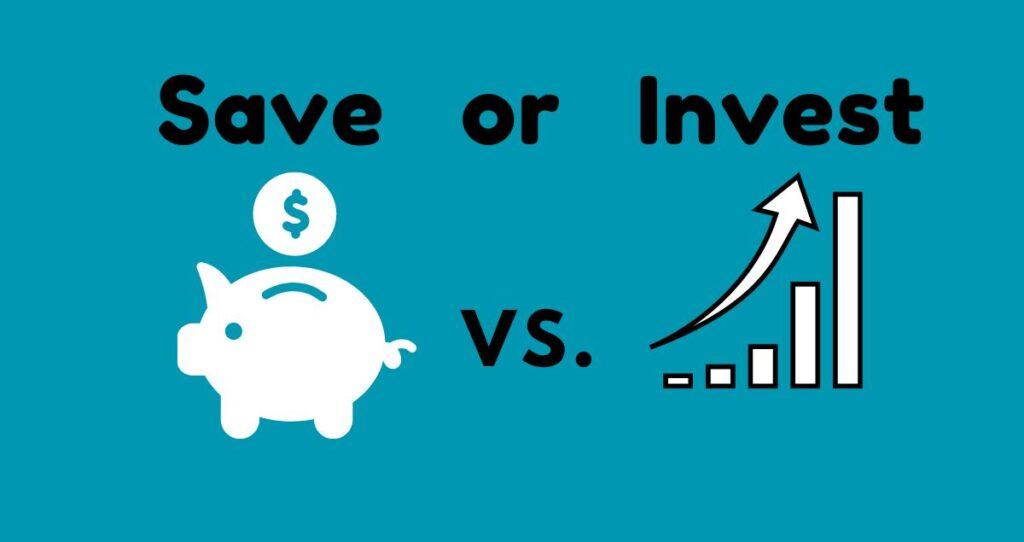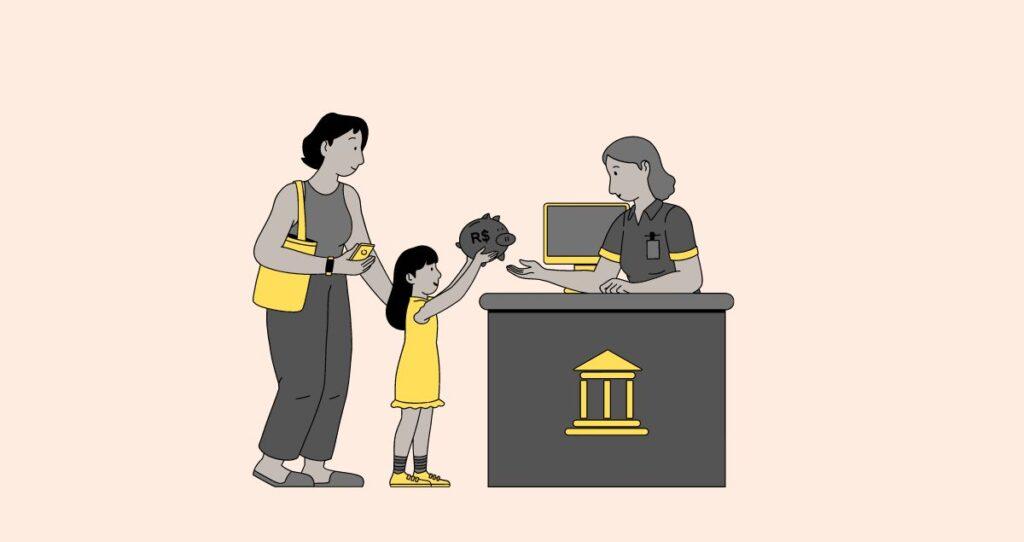Saving money can seem like a difficult task- something that is much easier said than done. Everyone dreams of having financial security and stability, but the truth is that saving money is harder than it looks. In this post, we will explore why it is so hard to save money in today’s world and what we can do to help make the process easier.
If you’re struggling to save money, it’s time to take control of your financial destiny. Start by creating a budget and tracking your spending. Reaching financial goals is hard work, but the results are worth it.
The following are the top 10 reasons why it is so hard to save money and what you can to do force yourself to save money.
1. Not understanding the long-term effect of small and repetitive expenses
If you have been struggling to save money, it is because you don’t understand the long-term effect of small and repetitive expenses. It is possible that you keep ignoring that $4 pop you get from a vending machine every day. Or a $5 cigarette pack you smoke every day.
What do these expenses mean? If only see that daily expense as just $5, you will always find it difficult to save money. It is not just $5. It is an expense that becomes a huge financial loss over time. Small expenses add up. What you see is just $5. But you fail to realize the long-term impact of that $5 after one year.
At the end of one year, you would have spent $1,825 on cigarettes. That is a down payment on a car.
And if you got a $4 drink from a vending machine every day, you would have spent an extra $1,460 on soda. In total, you lost $3,285 on cigarettes and vending machines alone. Think about that for a second.
What if you could have saved that money instead? This amount could become your down payment on a car or the home of your dreams. Instead, you smoked it without knowing it. At the end of the year, you will look in your savings account and realize it is empty. If you put that money into an investment, it could have grown by a small percentage.
Your inability to visualize the long-term effect of repeated small expenses makes it harder to save money.
2. Lack of a savings plan
It is so hard to save money when you don’t have a savings plan. The lack of a savings plan is like living in a vacuum with no real life or financial goals. When there is no savings plan, every dollar you make is up for grabs. Everything you see catches your attention.
That is when impulse shopping kicks in. Impulse shopping is often triggered by having a lot of disposable income that is not scheduled for. Or having access to a lot of credit limits on your revolving credit accounts.
Have you been to a store to buy two things and ended up buying 20 things that were not even on the list? Yes, every product that is in the impulse shopping aisle gets added to your shopping cart. Yes, you can’t have discipline around money and achieve saving milestones without a savings plan.
A savings plan lets you save money first and spend it later. That is, you know how much you must save every week, month, and year. This simple strategy will help you save first and spend only when your saving goal is reached. Unfortunately, it is hard to save money for millions of people because they spend first and save later.
Most people can’t save money because there is nothing left at the end of the month. So, they live a paycheck-to-paycheck lifestyle. This lifestyle leads to having no financial planning for their future or a budget to sustain and manage their finances.
3. Mismanagement of your money
Have you ever wondered why most people cannot save money? Maybe you are one of those people who make money but have no idea where it goes. Your savings account is empty and yet, you do not have designer clothes, luxury cars, etc. So, what happens to your money? Why is it so hard to save money?
The answer to this question lies in how you manage your finances. Mismanagement of your income is a great cause of lack of saving success. You can’t save if you don’t know how much you make and where it is spent. You can’t save money when your spending habits are on the roof.
Saving money is more of developing financial habits that allow you to keep the money you make in your pockets. Remember, it is not about how much money you make. Instead, it is about how much you keep.
Instead of getting paid and heading to the mall, you sit down and say, “From my paycheck, I need to save this amount to achieve my saving goals and then spend the remaining x amount”. You see, your savings goals come first.
I believe that every person should have a budget that is designed to lower their expenses. Living below your means is crucial to your financial success. That is right. You need to learn how to be happy with less. That is how you conquer your savings failures and boost your savings account.
4. It is hard to save money when you have too much debt
Debt is one of the biggest reasons most people cannot save money. Yes, debt alone can keep you poor for the rest of your life. Debt alone can make it difficult to save money. Why? Because everything you make gets taken away from you.
Each lender is knocking on your door. Your car loan payment is due. The mortgage is also due in the same week. Credit card payments and student loans also come along the way. Then, you say, “Maybe I need to stop paying my student loans. The government might forgive me.” You have no way to go because debt is crushing your dreams and your financial abilities right now. You are not alone. Millions of people are facing the same fate. Debt can be a major threat to the future of your well-being.
5. It is hard to save money due to the higher cost of living
If you are finding it so hard to save money it is due to a higher cost of living. The first and obvious reason to blame for a higher cost of living is inflation. Prices of goods and services cost more when inflation is high. You need more money to purchase the things you used to buy but your income did not increase in the same proportion. So, you are left with little to nothing after covering your expenses.
The second reason for a higher cost of living is self-inflicted. Living above your means. You purposefully choose to buy expensive stuff over the alternatives. When you go to the pharmacy, you choose to pay 10 times more for the same medication on brand-name products. Why? Because you think they are more effective.
You choose to buy a brand-new car instead of a used one. Why because you think a brand-new car drives better, sounds better, looks better, and can help you impress your friends. You are eager to buy expensive things and live an expensive lifestyle. But you don’t have the financial means to sustain that lifestyle. That is why every penny you make goes to cover your expenses. If you can learn to be happy with less and live below your means, you might have a little more money to save.
6. Procrastination
Procrastination is probably the biggest killer of progress. Have you wondered why it is so hard to save money? Well, it is probably because you are always saying, “I will start saving next year”. ” I will save after paying off my car” or “I need to buy this and that”. “I will save money later”. This procrastination habit prevents you from taking action.
Taking action is the most important decision you will make if you want to take control of your finances. How do you take action? Just get started. You don’t need to start saving a lot. If you are living on a tight budget or simply don’t make enough money, start saving the smallest amount you can afford. You can simply start saving $5 per month. $5 is not a lot but it is not $0 either. It is something to be proud of. This saving trick works best for people who are struggling with bad financial habits or those suffering from procrastination.
Your financial problems will never go away no matter how much money you make. Waiting to save money only after you have covered your money problem is a big financial mistake. When one money problem is gone, another one will appear. One year turns to 5 years, and later 30 years without saving.
So, get started first and start saving the amount you can afford. You can later increase your saving rate as you develop better financial habits and fix your spending problems.
7. Having an expensive lifestyle
Most people cannot save money because they spend every penny, trying to impress their friends with expensive and luxury items such as clothes, watches, shoes, cars, etc. You might also eat out a lot which is another common reason why it is so hard to save money. Usually, people who are good with their money do so by minimizing the number of times they eat out and tracking their expenses.
Making your own meals makes saving money easy and achievable. Those who eat out very often or dine in expensive restaurants find it difficult to save money.
You cannot save money because you desire to look rich rather than be rich. If you desired to be rich, you would build financial habits that help you learn how to save money, create a budget, learn to invest, etc.
Unfortunately, the opposite happens. You only desire to look rich. That is why you must keep spending your income on luxury items to look rich. It is not easy to save money when your mind is on the next flashy item on the market.
8. Lack of basic financial knowledge
Saving money can be a bit tricky. But, trying to save money without the knowledge of finances can make saving a lot more difficult. You see, saving money has nothing to do with putting money in a jar and hoping to get it full by the end of the year. You could do that. But it is not an effective way to save money.
Instead, saving money is more like understanding the basics of finances, what is money, and how money works. Then, use that knowledge to make decisions that keep the money to yourself instead of spending it on material things or losing it in interest charges and fees.
For example, you can save more money by paying off a high-interest debt than by keeping the money in a savings account. Why? A high interest will cost you 15% or more in interest whereas a savings account from your so-called favorite bank will be earning you between 0.01 % to 1%. You can easily see that there is a big difference between the annual percentage yield (APY) on your savings account and the annual percentage rate (APR) on your personal loan.
Instead of keeping that money in a savings account where you earn nothing, you can pay off high-interest debt. This will lower the overall interest charges you pay and keep most of your money in your pocket. Without understanding these concepts, it will be hard to save money. In addition, you cannot get ahead financially if you cannot successfully make fact-based decisions about your finances.
Knowledge is power. Making educated decisions that are backed by facts is what differentiates real-life success and gambling to your last breath.
9. Social pressure
It is often hard to save money when you are surrounded by friends, family members, and colleagues who value you only when you spend. Although you should stay away from such people or set up boundaries and manage your finances the way you see fit, the lack of support makes it harder to save money.
Social pressure is always to blame especially for those in poor neighborhoods. If none knows the benefits of saving money in your family or neighborhood to help educate others, then it is hard to break out and start saving. Each person is checking what the neighbor bought and being jealous about it instead of focusing on what to learn from the neighbor.
10. Financial insecurity makes it hard to save money
If it is so difficult to save money, it is probably due to the lack of enough income. People who don’t make enough money to support themselves often find it difficult to save money. What they make barely covers their expenses which leads to little to nothing left to put into their savings accounts. Making less money also means that they cannot easily increase their incomes. Some people choose to do two jobs to break even.
But working two jobs means they are always tired which leads to self-compensation. In other words, they think they deserve good and expensive stuff because they worked hard for them. So, they buy expensive stuff, eat in expensive restaurants, own pricy homes in high-class neighborhoods, etc. These habits and mental programming are the primary reasons many people find it difficult to save money.
How to force yourself to save money?
Being good at saving money is not that complicated. It is all about understanding your income, tracking your expenses, and making decisions that align with your financial goals. If it has been so difficult to save money, consider using the following money-saving tips to get in charge of your finances.
- Start budgeting your money. Budgeting is not a new concept. Unfortunately, not everyone engages in understanding their finances through budgeting. Almost everyone knows about budgeting, but a handful of people make budgets. Why is budgeting so important? Because it works. A budget allows you to see where you are spending more money than you are supposed to spend and helps you cut down on unnecessary spending. The budget will allow you to set limits on expenses.
- Establish saving goals. Saving goals are crucial to your financial success. You cannot successfully save money without having saving goals. For example, a saving goal can be buying a house, being financially independent, saving for retirement, saving for a car purchase, etc. Any financial goal that means a lot to you can be a good saving goal. Once you have goals, keep your mind on them and build a plan to help you achieve those goals.
- Open a savings account. Saving money can be very difficult. But, with the right strategy, saving money can be one of the easiest things you can do. A great way to be good at saving money is to open a savings account with your bank and allocate a small amount to the account every month. Once you are used to putting money into your savings account, then move to other types of accounts such as certificates of deposits (CDs), money market accounts, or high-yield savings accounts.
- Establish weekly, monthly, and yearly spending limits. Just like budgeting, having a spending limit is a great strategy to help you save money. Always write down the amount you need to spend weekly, monthly, and yearly.
- Set up automatic saving. Most people cannot save money because they cannot stop their spending urges once they receive their paychecks. If you are one of the people who can’t manage their spending urges, consider automating money into your savings accounts. Have your savings amount deposited in your account directly from your employer. You cannot spend it if it is not delivered into your hands.
- Contribute to your retirement accounts. If you have a job that offers retirement benefits, start contributing to these accounts. For example, you can contribute to your 401(k) plan and put extra cash into an individual retirement account (IRA). If you can start early and put money away for a long time, compound interest alone will grow your account exponentially.
- Lower your rent payment. You are probably finding it difficult to save money because you live in an expensive apartment. What you can do is move to a cheaper place. For example, if you are living in an apartment where you pay $3,000 per month, you can move into a $2,000 rental home or apartment. That is $1,000 freed every month right there. You might need to move a little further out of the city or move into a smaller apartment. But it will be worth it.
- Shop with a list. Another effective strategy to force yourself to save money is to shop with a list. A list gives you a limit to how much you need to spend and what you are going to spend it on. No impulse shopping issues or buying random stuff that is not needed in your life.
The bottom line
Saving money is difficult, but it is possible with the right plans and attitudes. To have financial stability and security, you need to be more educated and aware of your spending decisions. You need to know how to set and reach your financial goals, and how to plan for the future.
It is important that you value the future of your finances more than your current feelings. The urge to own more should be minimized. You don’t need to look rich. You need to be rich. There is a difference between the two concepts. Always avoid questionable debts and live below your means.

